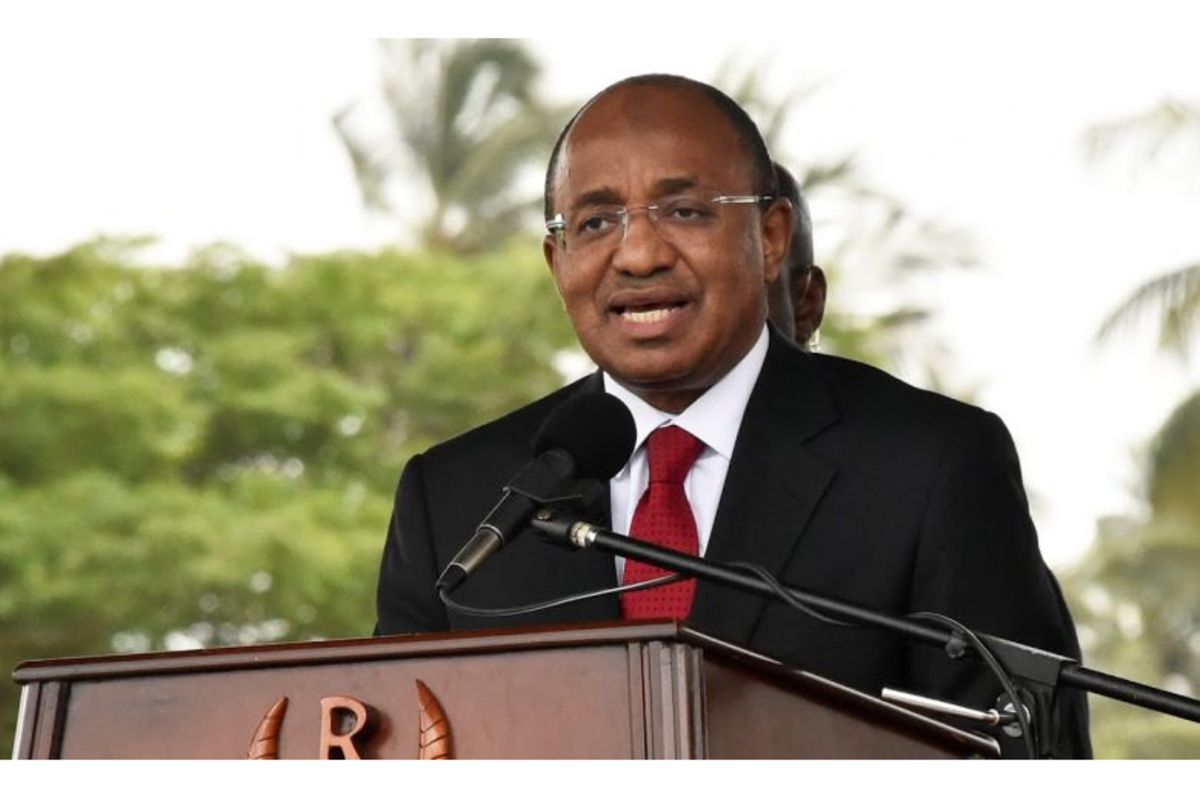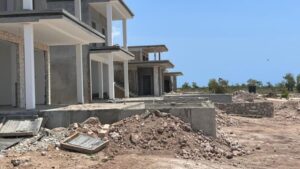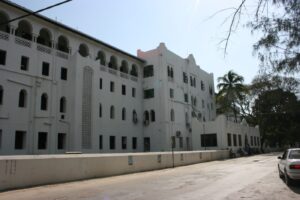
Unguja, Zanzibar:
Zanzibaris have expressed different views regarding the laying of foundation stones for 55 development projects by the government of Zanzibar, as part of the celebrations of the 59th anniversary of the revolution.
In the celebrations that culminate today, the projects have been launched in all 11 districts of Unguja and Pemba regions.
The projects include primary and secondary schools, district hospitals and health centres, water wells, hotels, modern fish markets and fish storage rooms.
Other projects were crop processing centres, electricity, youth training centres, entrepreneurs’ market, laboratories and playgrounds.
Among the projects, Unguja has 35 projects and Pemba 20.
Along with the ministers, the projects have been launched and the foundation stones laid by senior national leaders including President Samia Suluhu Hassan, Dr Hussein Mwinyi, the first and second vice presidents, Dr Philip Mpango, Prime Minister Kassim Majaliwa and retired presidents Dr Ali Mohamed Shein, Amani Karume and Jakaya Kikwete.
The leaders at different times asked the people to respect the revolution while saying that was the right way to sustain it because it aimed to free the people of Zanzibar from discrimination and free them socially and economically.
However, the Vice-Chairman of the National Celebrations Committee, Minister of State, Regional Administrations and Special Departments of SMZ, Masoud Ali Mohamed said it was not easy to get the actual cost figures of the projects but it is millions of money spent.
Speaking at different times about the projects, some of the citizens applauded the measures but cautioned the durability of the projects claiming that many executives lacked patriotism.
Said Idd, a resident of Unguja, said the leadership of Dr Mwinyi has shown a sincere desire to solve the problems of poor citizens because they have looked at projects that affect the lives of even the lowest class.
“Look at these schools being built, our children used to study in shacks, but today we are building storey schools, who knew we would actually have schools like this in Zanzibar,” he said.
For his part, Khalfan Salim, said that this was a major development within the isles, and as such, was the responsibility of the people to protect the projects.
However, he noted building a hospital is one thing, but having equipment and experts is another thing and the government now needs to put in good infrastructure, medical equipment and experts.
On the other hand, wishing the people and leaders of Zanzibar success in the celebrations, the ACT-Wazalendo Party urged the former to take steps to develop national solidarity and reconciliation as the main social and economic foundations.
Share this news
This Year’s Most Read News Stories

Shock waves hit Zanzibar’s Real Estate industry
The revocation of British developer Pennyroyal’s leasehold for the construction of Blue Amber Resort by the Revolutionary Government of Zanzibar has sent shock waves in the nascent property market on the Isles.Continue Reading

Tanzania: Exim to Raise Fund for Mental Health Facilities Upgrades

EXIM Bank to raise 300m/- over the next three years for financing essential services and infrastructure upgrades in mental health facilities.
The bank’s Head of Marketing and Communications Stanley Kafu unveiled this when introducing Exim Bima Festival 2024 as a platform for bringing together individuals, organisations and various sectors for raising the funds.
“Exim’s initiative aligns with the government’s broader goals to ensure that every citizen has access to quality healthcare, including mental health services,” he said.
The initiative, which is one of the events for celebrating the bank’s 27th anniversary is scheduled for Wednesday this week in Dar es Salaam.
Mr Kafu highlights that this year’s festival is not only about raising awareness of the importance of insurance in the society but also focuses on enhancing access to mental health services and improving the overall well-being of the nation.
Statistics from the Ministry of Health shows a staggering 82 per cent increase in mental health cases over the past decade.
Mental cases have risen from 386,358 in 2012 to 2,102,726 in 2021, making the need for mental health services more urgent than ever.
ALSO READ: NBC’s Saving Campaign Empowers Customers Nationwide
Unfortunately, the country’s ability to address this growing challenge is hindered by a shortage of mental health professionals, infrastructure, medical equipment and essential medication.
For example, out of the 28 regions in the country, only five have facilities that provide adequate mental health services.
The most affected group is the youth aged 15 to 39, who represent the nation’s workforce, underscoring the need for intensified efforts to safeguard this generation for Tanzania’s future well-being and development.
Mr Kafu said by improving mental health services, Exim aims to contribute to the creation of a network of communities that can access care quickly and affordably.
Exim Insurance Department Manager Tike Mwakyoma said they are appreciating the support from partners in the insurance industry, who have stood by them since the last festival.
“Let’s continue this unity for the development of all Tanzanians and our nation as a whole,” the manager said.
Source: allafrica.com

Huduma Zimezorota Hospitali Ya Rufaa Mnazi Mmoja Zanzibar
Huduma katika Hospitali ya Rufaa ya Mnazi Mmoja Zanzibar zimezidi kuzorota huku wananchi wengi wakilalamikia uongozi wa Hospitali hiyo na watendaji wake.Continue Reading










